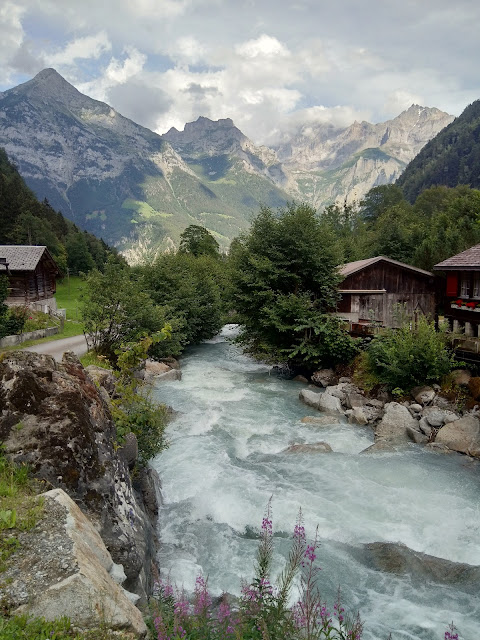hold the fire
And it works
just like quality clockwork again.
.
You're in a dilemma?
Try evolution, not revolution.
Bet on erosion, not explosion.
Why the slow way?
You're in a dilemma, right?
Who moves first?
The stronger. - Why? - Executive presumption of innocence.
What's the strategy?
Split the power into regional forces.
Federalize the judiciary.
Freeze the central government's legislative process.
Does an executive agree to such a move?
Since there's a civil war,
the central authority has arguably lost its grip on the monopoly of force,
and could therefore be considered the weaker faction -
also because the freedom fighters have already made the first move
by establishing independent courts.
How to organize elections in a conflict?
With the monopoly of force splitting into regional armies, it should firstly be possible
for the various fighting factions to come to local ceasefire agreements
and secondly, it should be possible to organize elections - worst case with outside help.
How to believe that?
Since there's a spiralling conflict, no side is innocent anymore.
Hence there's common ground to trade ceasefire agreements
and agree on how to rebuild the democracy.
Result one :
The president is re-elected as president, prime minister or one of the councilors,
ie he/she has immunity.
You move on.
Result two :
The president is not re-elected,
ie he/she is innocent until proven otherwise.
You move on.
Eitherway,
the regional armies unite again after the elections
by vowing allegiance to the new central authority.
The rest is detail.
And that the whole process works much better when the new executive is a directorial one,
should be evident by now.
The goal is good enough.
The goal is acceptable.
The goal is peace.
...
And it works
just like quality clockwork again.
.
You're in a dilemma?
Try evolution, not revolution.
Bet on erosion, not explosion.
Why the slow way?
You're in a dilemma, right?
Who moves first?
The stronger. - Why? - Executive presumption of innocence.
What's the strategy?
Split the power into regional forces.
Federalize the judiciary.
Freeze the central government's legislative process.
Does an executive agree to such a move?
Since there's a civil war,
the central authority has arguably lost its grip on the monopoly of force,
and could therefore be considered the weaker faction -
also because the freedom fighters have already made the first move
by establishing independent courts.
How to organize elections in a conflict?
With the monopoly of force splitting into regional armies, it should firstly be possible
for the various fighting factions to come to local ceasefire agreements
and secondly, it should be possible to organize elections - worst case with outside help.
How to believe that?
Since there's a spiralling conflict, no side is innocent anymore.
Hence there's common ground to trade ceasefire agreements
and agree on how to rebuild the democracy.
Result one :
The president is re-elected as president, prime minister or one of the councilors,
ie he/she has immunity.
You move on.
Result two :
The president is not re-elected,
ie he/she is innocent until proven otherwise.
You move on.
Eitherway,
the regional armies unite again after the elections
by vowing allegiance to the new central authority.
The rest is detail.
And that the whole process works much better when the new executive is a directorial one,
should be evident by now.
The goal is good enough.
The goal is acceptable.
The goal is peace.
...
And it works
just like quality clockwork again.
.
You're in a dilemma?
Try evolution, not revolution.
Bet on erosion, not explosion.
Why the slow way?
You're in a dilemma, right?
Who moves first?
The stronger. - Why? - Executive presumption of innocence.
What's the strategy?
Split the power into regional forces.
Federalize the judiciary.
Freeze the central government's legislative process.
Does an executive agree to such a move?
Since there's a civil war,
the central authority has arguably lost its grip on the monopoly of force,
and could therefore be considered the weaker faction -
also because the freedom fighters have already made the first move
by establishing independent courts.
How to organize elections in a conflict?
With the monopoly of force splitting into regional armies, it should firstly be possible
for the various fighting factions to come to local ceasefire agreements
and secondly, it should be possible to organize elections - worst case with outside help.
How to believe that?
Since there's a spiralling conflict, no side is innocent anymore.
Hence there's common ground to trade ceasefire agreements
and agree on how to rebuild the democracy.
Result one :
The president is re-elected as president, prime minister or one of the councilors,
ie he/she has immunity.
You move on.
Result two :
The president is not re-elected,
ie he/she is innocent until proven otherwise.
You move on.
Eitherway,
the regional armies unite again after the elections
by vowing allegiance to the new central authority.
The rest is detail.
And that the whole process works much better when the new executive is a directorial one,
should be evident by now.
The goal is good enough.
The goal is acceptable.
The goal is peace.
Arak please !
...
